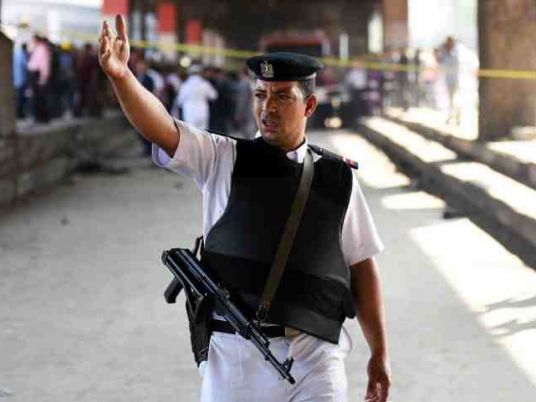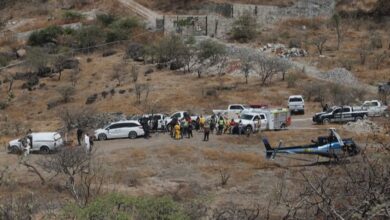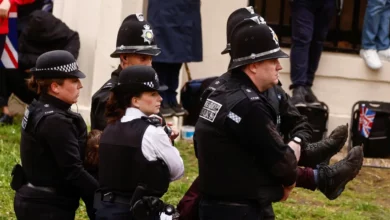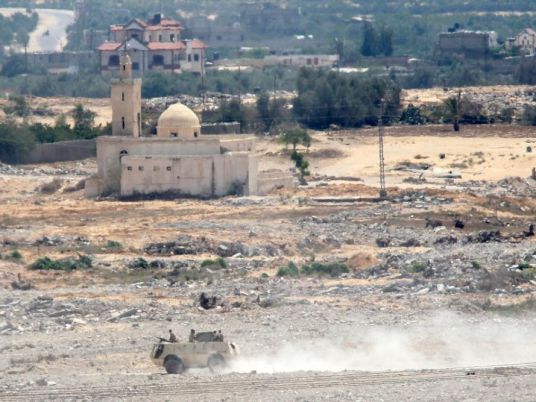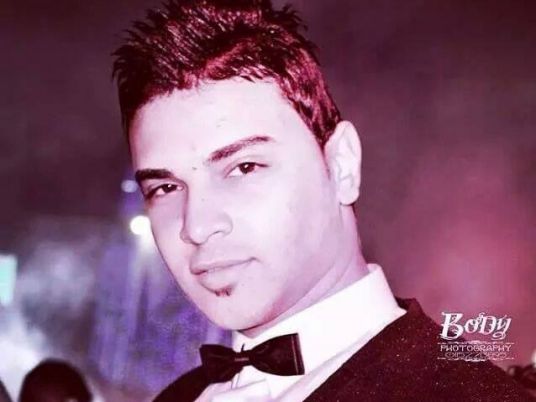
In the late evening hours on Sunday, which marked the fourth anniversary of the 2011 uprising, four friends left their home in the rundown district of Matariya for lunch, and on their way, they heard about violent clashes taking place between Muslim Brotherhood backers marking the occasion and security forces.
The four friends, with cautions curiosity, moved to the scene to verify the rumors, only to find hundreds of their peers struggling to avoid gunshots that relentlessly echoed in the area. They stood at the backstage at a distance they believed was safe enough, when one of them took out his mobile phone and started to take a video record of the situation.
As the camera turned around, it captured the known DJ Ahmed “Zo’la” Mohsen, one of the gang, who appeared with a smile on his face. “How can I travel tomorrow with all this?” he said. It was his final words before he was taken out of the cadre with gunshot in the head.
While Interior Minister Mohamed Ibrahim blamed the killings in Matariya on Brotherhood protesters in his news conference on Monday, the band’s top performer, al-Sadat, blamed police for his murder. “Ahmed was killed by live ammunition,” al-Sadat wrote on a Facebook page commemorating him. “I don’t want anyone from the Interior Ministry to tell me it was bird shot,” implying that the bullet came from a police gun.
It was the end of a popular figure of Egypt’s newest, controversial musical genre called “mahraganat” (festivals). The band, composed of Alaa Fifty, Sadat and Amr Haha, had made plans to travel to Arish to perform in a wedding, which were promptly canceled after their band member’s death.
“I phoned him yesterday to remind him of our Arish trip, but he told me he was unsure if he could make it because there was tension in the neighborhood,” Alaa Fifty said.
People in Matariya mourned late Monday, with tens of Zo’la’s friends waiting outside his residence, unable to believe that they won’t see again their 21-year-old DJ friend composing new hits with his computer.
Known for his DJ mastery years ago, Zo’la met members of the trio band during their study at a tourism institute, where he started his career in mahraganat music, winning thousands of fans.
A year ago, Zo’la accompanied the trio on tour to the Netherlands. There, he rejected offers to stay for musical lessons and preferred to return back home with his friends.
Zo’la’s friends mourned him on his Facebook page. “Ahmed Zo’la the martyr of Matariya, died by the Interior Ministry’s gunfire,” read the cover of the page that has gained more than 5,000 followers so far.
“His music was his life; he died with the police gunfire though he was neither a Muslim Brotherhood nor a terrorist; he has no political affiliation,” the page’s admin wrote. “Police are ignoring the vivid terrorism in Sinai and instead killing our youth.”

